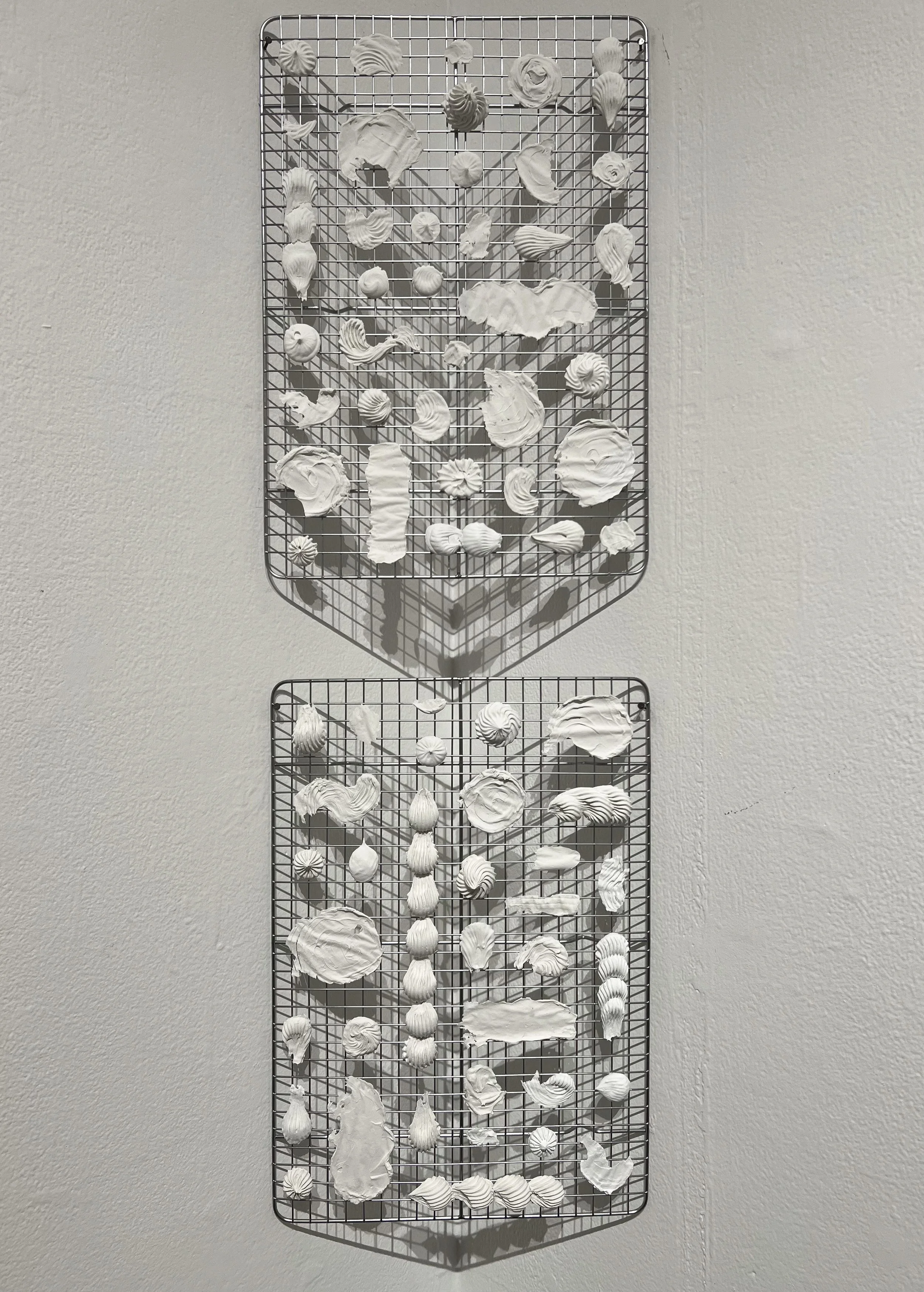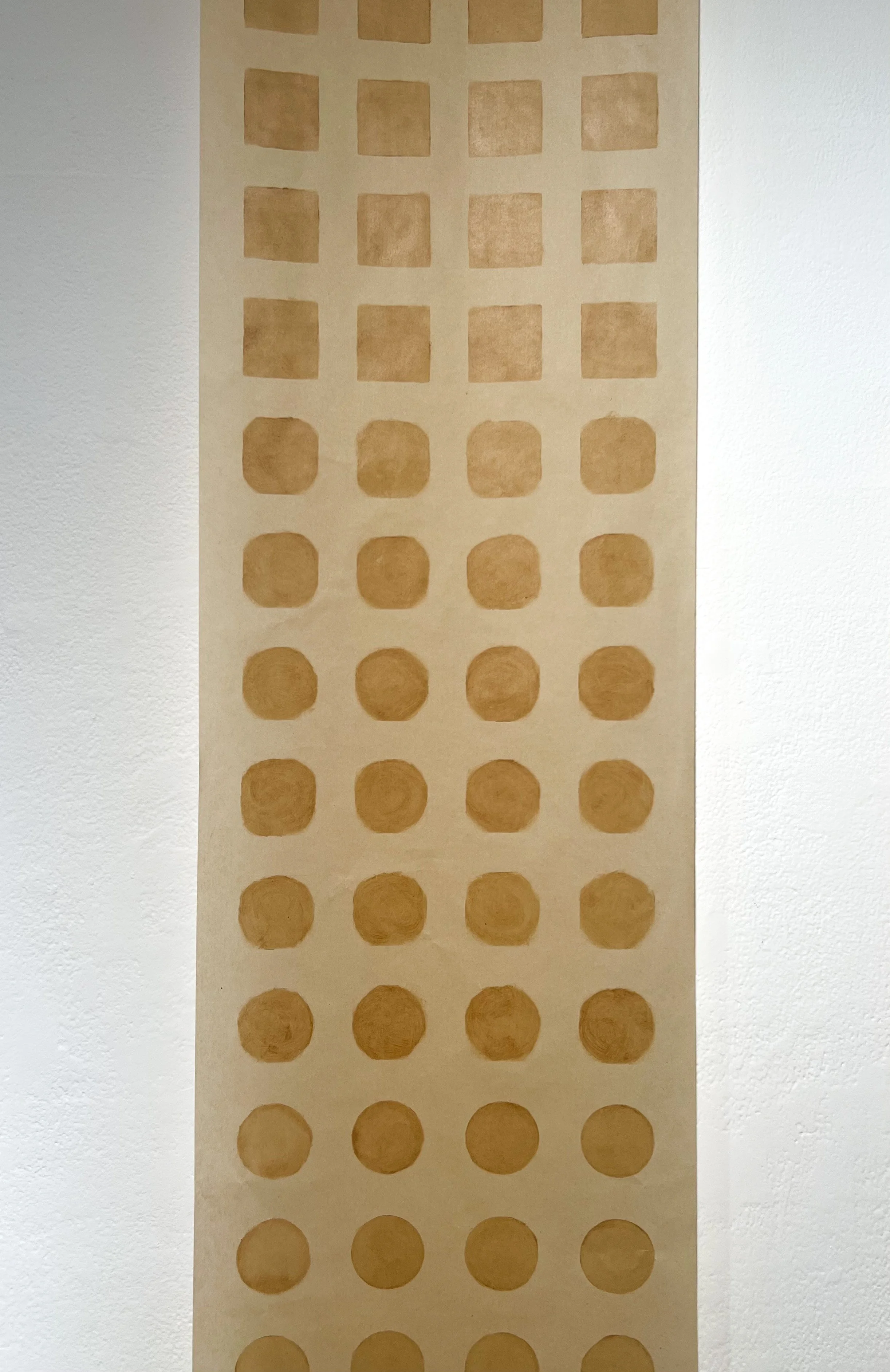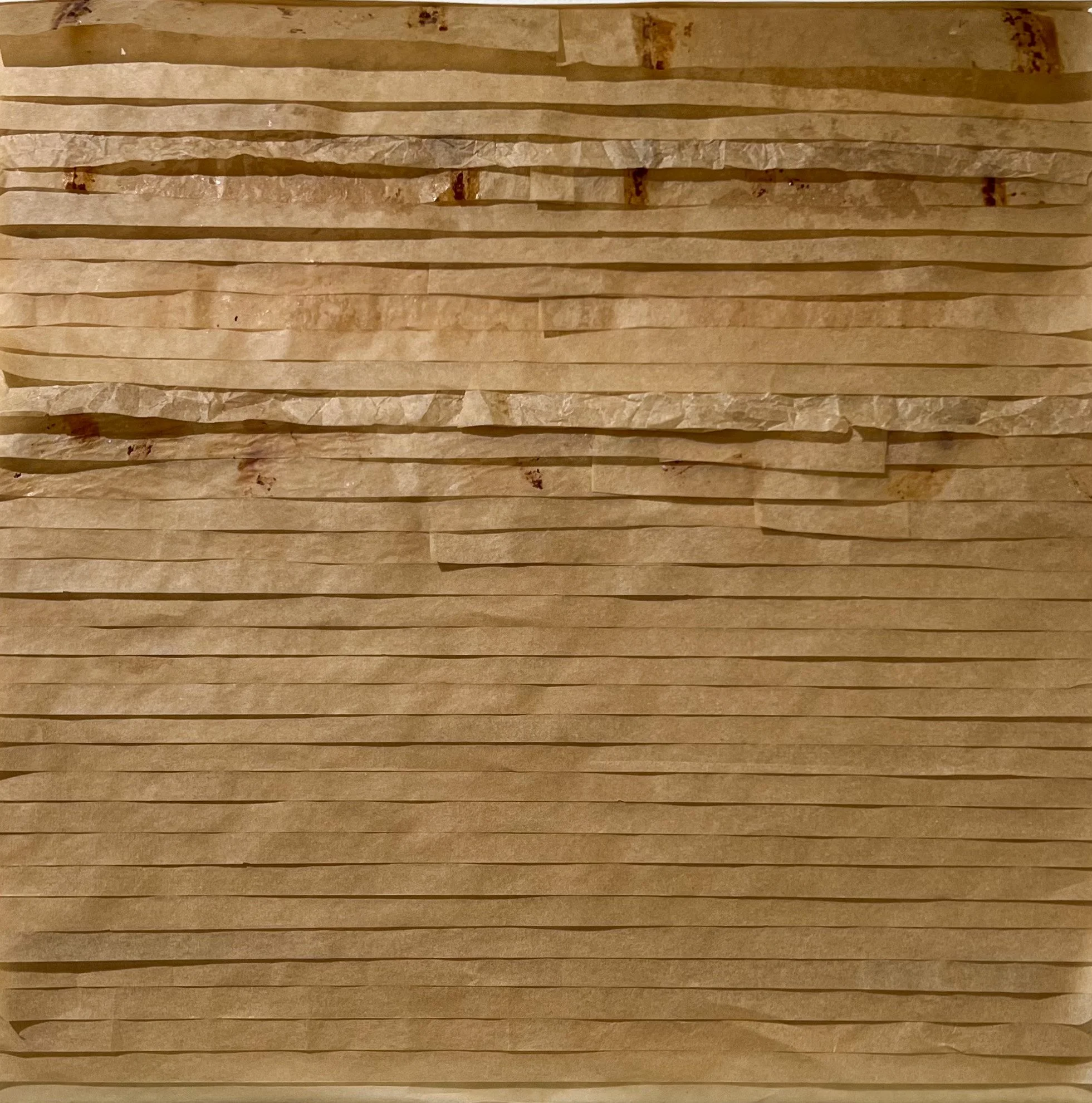Gabi Charest
Baking appeared in my life as a way to release my anxieties. As I acknowledge my journey in this hobby I found comfort in what was my misery and through this, I found comfort in the history of baking for women. We notably link a gendered type of care and nurturing in our culture with baking, especially the domestic sweet and pie sort as opposed to the technical professional pastry. Historically the “hobby” is discredited because it is historically a female tradition in a society was founded on misogyny. Yet for most women baking is empowering and serves as an escape route from the chaos. There is a constant push and pull of perfection and the unknown. All of the ingredients could be perfectly measured and the result might be completely unexpected. There is power in the trust that one must have in the process. Looking into the process my work delves into the formalist grid structure of high art and dismantles the harsh structure with elements of personal touch and human error. By subverting the norm using parchment paper as art material I wanted to tap into the pain and life experiences of my life and every woman that exists now and in the past. I did not want to portray women as passive victims as there is anger after the hurt. The process of not only folding the paper but baking over time and collecting the used material taps into the time-based aspects of works that look into the exploration of private into the public sphere. Deconstructing baking to its most minimalist qualities lends itself to a multitude of ideas. Each oil mark and fleck of pastry stuck on tells its own story of the mood and emotions I was feeling when I felt to need to bake. There is a forgotten conversation regarding women in the kitchen particularly baking within the high Art world which I why I chose to display it as canvas.





